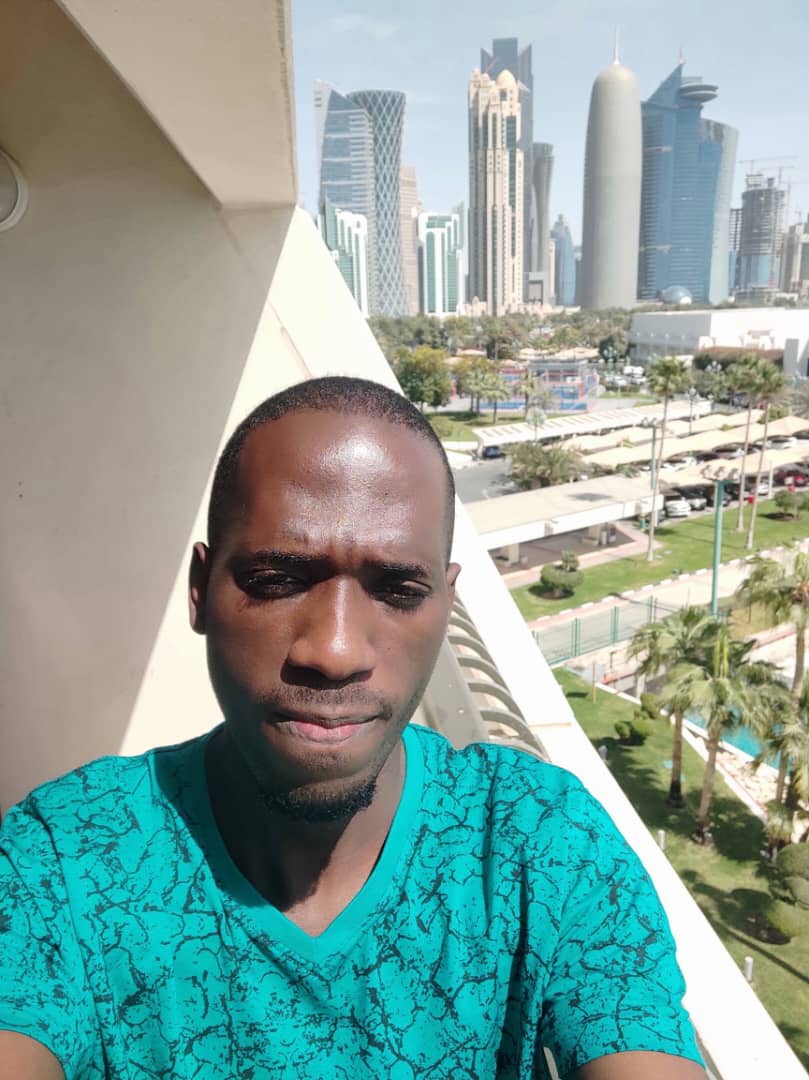Hinduism is one of the world’s oldest religions, with a rich history and culture. One of the most interesting aspects of Hinduism is its beliefs about death and the afterlife. Hindus believe in the concept of the soul, known as the atman, which leaves the body when a person dies and is reborn into another form. In this article, we will explore the Hindu beliefs about what happens after death, including reincarnation and the importance of death practices.
Here are 20 different beliefs about what Hindus believe happens after death:
- Hindus believe in reincarnation.
- The soul, or atman, is eternal and leaves the body when a person dies.
- The soul is reborn in another physical body or form.
- Passing from one life to the next, each soul is on a journey of spiritual development facilitated in part by karma.
- The concept of karma means that every thought and action has a corresponding reaction.
- One experiences the results of both good and bad deeds over a series of lives.
- The condition of one’s consciousness at the moment of death is considered very important in determining the state of the next life.
- Death is not the end but a transition from one life to the next.
- The soul is uplifted through every good action performed and degraded with every bad action.
- Death practices are probably more important in Hinduism than in any other religion.
- It is traditional for Hindus to die at home.
- Funeral preparations begin immediately after death.
- The body is temporary and eventually dies, but the soul is eternal.
- The soul is part of a jiva, the limited being, who is subject to the impurities of attachment, delusion, and laws of karma.
- The fate of an individual upon death depends upon many factors, including karma.
- Some Hindus believe that humans may be reborn in animal form.
- Rebirth from human to animal form only occurs if an atman has repeatedly failed to learn lessons in human form.
- Living life according to teachings in the scriptures will eventually lead to moksha.
- Moksha is the atman becoming absorbed with Brahman, from where each atman is believed to originate.
- Hindus view death not as something to mourn over, but something to view in an optimistic light.
What is the concept of reincarnation in Hinduism?
The concept of reincarnation in Hinduism is based on the belief that the soul is immortal and takes on a physical body through many cycles of birth, death, and rebirth. This continuous cycle is called samsara.
Reincarnation is linked to the law of karma, which states that all actions have consequences that determine the soul’s future incarnation. The soul transmigrates into different life forms, moving up or down the cosmic hierarchy based on the merits or demerits it accumulated in its previous life. The ultimate aim is for the soul to attain moksha – liberation from the cycle of death and rebirth.
How does karma play a role in the Hindu belief about the afterlife?
Karma is central to Hindu beliefs about life after death. Hindus believe karma determines the state of an individual in their next incarnation. Each soul’s karma, accumulated over countless births, decides the type of body and life-conditions the soul inherits in the next birth.
A soul may be reborn as any living thing based on karma. Good deeds lead to incarnation in happier, higher states of existence while bad deeds lead to suffering in lower forms. Only when karma is balanced and one attains self-realization can the cycle of reincarnation end in moksha.
What is the significance of the soul in Hinduism?
The soul, known as atman, is of great significance in Hinduism. Hindus believe the atman is eternal, unchanging, and identical to Brahman, the supreme universal spirit. The body dies but the soul lives on, transmigrating into new bodies and new lives based on karma.
The goal is for the atman to achieve moksha, liberating itself from the cycle of death and rebirth. Soul realization is key to both worldly fulfillment and spiritual liberation. How one lives their life and cares for their soul impacts its karmic evolution towards moksha.
How does Hinduism view death compared to other cultures?
Unlike other cultures that may view death with finality, Hinduism sees physical death as part of the soul’s continuous spiritual journey. Death is not seen as an end but simply a transition and not something to be feared.
Hindus thus have a different perspective in coping with death. Rituals and beliefs around death in Hinduism also differ from other faiths. There is less emphasis on grief and mourning, rather the focus is on helping the soul continue its righteous journey and perhaps even attain liberation.
What are some Hindu death traditions and practices?
Hindu death traditions and practices include cremation as the preferred funeral rite, gathering of mourners at home, bathing and dressing the body, transporting it to the cremation grounds, performing various rituals before igniting the funeral pyre, collecting ashes in an urn for dispersal in holy rivers, post-cremation rituals, death anniversaries, and other memorial ceremonies.
There are also specified mourning periods and rituals for close family. Many of these practices are guided by Hindu priests. Chanting, hymns, and prayers emphasize helping the soul transition peacefully.
How do Hindus honor and remember the dead?
Hindus believe death is not the end so their traditions and practices focus on honoring the soul and helping it continue its spiritual journey. Key ways Hindus honor and remember the dead include performing cremation and post-death rituals guided by priests, chanting mantras, offering rice balls and water to ancestors, observing the death anniversary, conducting memorial ceremonies, visiting holy sites to donate ashes, having villagers gather to sing hymns, and annually performing the 16-day shraadh ritual to nourish departed ancestors.
What are the different realms or destinations for the soul after death in Hinduism?
According to Hindu scriptures, the different realms the soul can enter after death are:
- Heaven (Swarga): For righteous souls
- Hell (Naraka): For souls who indulged in evil
- Asura Realm: For selfish and materialistic souls
- Animal kingdom: For souls with animalistic tendencies
- Ghost realm: For souls unable to move forward after death
- Rebirth on Earth: For souls who still need to realize God or pay off karmic debt
The ultimate destination is for the soul to achieve Moksha – liberation from the cycle of death and rebirth.
Can a soul be reborn in animal form according to Hindu beliefs?
Yes, Hindus believe a soul can be reborn in animal form based on its karma. Souls that indulged in ignorant, violent or animalistic behavior may take birth as creatures lacking intelligence and awareness.
Evil actions like harming living beings could cause the soul to regress to lower life forms like insects, amphibians or animals that live in darkness. Hindu scriptures describe numerous such instances of human souls being reborn as different creatures as a consequence of their actions.
How does one’s consciousness at the moment of death affect the next life in Hinduism?
Hindus believe the state of mind or consciousness at the moment of death significantly impacts an individual’s future incarnation. A person dying calmly in a righteous state of mind attains an auspicious rebirth.
Those dying in delusion or attachment to material desires are reborn in lower realms. People dying suddenly in sin are believed to become ghosts. To promote conscious death, Hindus chant mantras, read scriptures, and meditate on God at death’s door. This helps the departing soul let go of lingers attachments and achieve oneness with Brahman.
What is the role of good and bad actions in determining the atman’s rebirth?
Hindus believe both good and bad actions or karma determine what the immortal soul or atman will experience in its next life. According to the law of karma, every intent, thought or action, good or bad, creates karmic ‘residues’ that affix themselves to the soul influencing its future rebirth and life experiences.
Good deeds lead to happiness, whereas crimes and wrongdoing lead to suffering in the next life. Through just actions and spiritual wisdom, one’s atman can take higher rebirth and ultimately attain liberation from the cycle of death and rebirth.
What is the ultimate goal of Hinduism in relation to the afterlife?
The ultimate goal in Hinduism with regard to life after death is for the individual soul or atman to achieve moksha – permanent liberation from the cycle of death and rebirth.
This is attained when the atman transcends its separate existence through purification from karma and merges into oneness with Brahman, the divine eternal essence of the Universe. Attaining moksha means the soul breaks free from its mortal existence and suffers no more rebirths, aging or death.
How does Hinduism view the concept of moksha?
In Hinduism, moksha represents the ultimate spiritual goal and the release from worldly suffering and the cycle of birth and death. It represents liberation of the soul from samsara, the continuous cycle of death and rebirth. Moksha is attained through realizing one’s true self and cosmic oneness with Brahman.
Those attaining moksha become one with the Divine and are freed from karma and the mortal world. Hindu scriptures provide philosophical frameworks for attaining moksha – through ethical living, fulfilling one’s duties, spiritual discipline, meditation, and God’s grace. Moksha represents the soul achieving its most purified and enlightened state.
What are the different scriptures that describe moksha in Hinduism?
Some key Hindu scriptures that describe the concept of moksha or liberation are:
- The Upanishads – These Vedic texts extensively discuss the nature of moksha and paths to achieve it.
- The Bhagavad Gita – This renowned scripture contains Lord Krishna’s teachings on attaining moksha through selfless service and devotion.
- The Puranas – These collections of ancient tales have sections on ethics, dharma and moksha.
- The Dharma Shastras – These Hindu law books describe the four main goals of life, including moksha.
- The Yoga Sutras – This seminal text on yoga describes integration of mind and body to achieve moksha.
- Vedanta Sutras – A compilation by Badarayana outlining the path to moksha through metaphysical knowledge.
How does Hinduism view the cycle of death and rebirth called samsara?
Hinduism views samsara, the continuous cycle of death and rebirth, as something to be escaped in order to attain spiritual liberation. Samsara is powered by karma, which causes attachment and desire binding the individual to the mortal world.
While dharma ethical living can improve one’s experience in samsara, true liberation requires transcending the cycle altogether through moksha. Samsara is seen as a prison, full of suffering and limitation.
Moksha represents breaking free from its limits to merge with the eternal and infinite. Still, while caught in samsara, Hindu teachings guide people to live the best possible life through dharma.
Are there any similarities between Hinduism and other religions in their beliefs about the afterlife?
There are some similarities between Hindu beliefs about the afterlife and other religions:
- The concept of heaven for righteous souls and hell for evildoers is found in Christianity and Islam as well.
- Some Buddhist and Sikh scriptures also mention various heavenly and hellish realms that souls enter based on karma, similar to Hinduism.
- The goal of attaining eternal bliss by reuniting with the Divine is shared by multiple Indian philosophies including Hinduism, Buddhism and Jainism.
- Catholicism shares the concept of sacraments and rituals related to death and the afterlife.
- Both Hinduism and Spiritism believe souls can be reborn in animal form based on actions.
- The immortal soul detached from the body exists in many faiths beyond Hinduism.
How does the concept of samsara differ from the Catholic belief in life after death?
The key differences between samsara and the Catholic belief in afterlife are:
- Samsara involves multiple births while Catholics believe in only one life followed by eternal afterlife.
- Reincarnation across life forms is part of samsara but rejected in Catholicism which says humans have only one birth.
- Samsara is considered something to escape by Hindus whereas Catholics aim to reunite with God in afterlife.
- Samsara is an endless cycle while afterlife in Catholicism offers eternal rest in one place based on one’s deeds.
- Catholics don’t share the karmic concept that actions in one life determine the next rebirth.
- Catholicism focuses on judgment by God after death unlike the broader karmic laws governing samsara.
What is the role of Brahman in Hindu beliefs about the afterlife?
Brahman, the highest universal spirit in Hinduism, is the ultimate divine essence that souls aspire to unite with after the death of the physical body. Released from the cycle of samsara, a soul that achieves moksha transcends its individual existence to become one with the infinite Brahman. Brahman represents absolute reality and bliss.
Soul merger with Brahman is the final spiritual aim of Hinduism. Brahman is believed to be eternal, perfect, infinite and the source of all life. Understanding the true nature of the soul as identical to Brahman leads to self-realization that helps break the karmic cycle of rebirth after death.
How do Hindu beliefs about the afterlife impact their views on life and death?
Because life and death are seen as cyclical states in Hinduism, Hindus approach both life and death in a different manner compared to beliefs that see death as a finality. Past deeds and other births impacting the next birth makes Hindus ethical and conscious of actions. Suffering is explained through karma and not seen as punishment.
The possibility of moksha provides ultimate hope. Detachment from the mortality of the body and material things is easier. Rituals related to death help eased anguish and grief. Life’s purpose becomes spiritual development. Respect for all life, even animals, is greater due to interconnectedness through reincarnation.
What are some Hindu rituals and practices related to death and dying?
Key Hindu rituals and practices related to death and dying include:
- Cremation of the body as the preferred funeral rite.
- Gathering for a wake in the home where the departed soul is believed to linger for a few days.
- Close family members bathing and clothing the body before cremation.
- Transporting the body on a decorated bier to the cremation grounds accompanied by chanting.
- The chief mourner performing rituals like circling the pyre before lighting it.
- Collecting ashes in an urn for immersion in holy rivers like the Ganges as part of last rites.
- Periods of death impurity and post-death rituals for cleansing.
- Annual death anniversary ceremony and rituals remembering the departed soul.
How does Hinduism view the mysteries of life and death?
Hinduism views the mysteries of life and death as part of a greater cosmic truth unfolding through the divine play of Gods. Yet there is an order and purpose to it as evident in the law of karma and the phenomenon of reincarnation which provides continuity between life and death.
The questions around life and death are some of the profoundest inquiries occupying Hindu philosophy and its quest to reveal the Absolute Truth underlying all existence.
Hindu sages contemplate these eternal mysteries through meditation, experience and spiritual wisdom passed down in scriptures. Life and death form essential links in an immortal soul’s evolutionary journey towards understanding its own divinity.
What are the laws of karma and reincarnation in Hinduism?
The law of karma states that every thought, word and action creates an indelible impression that follows each soul from birth to birth. Good deeds bring positive karma and future happiness while evil actions lead to suffering. Karma binds the soul to the cycles of mortal existence.
Reincarnation means the immortal soul is continually reborn into different physical bodies through the process of samsara until it achieves moksha or liberation from this cycle. Reincarnation makes men and women responsible for their own destiny based on their karma.
It provides the opportunity for souls to exhaust their karma over many births rather than a single lifetime. Both these laws underscore the importance of moral living.
How does the belief in reincarnation give Hindus acceptance of every level of humanity?
Belief in reincarnation gives Hindus a sense of universal acceptance as they understand people are born in various circumstances based on past karma. High or low status, intelligence, prosperity, struggles – all depend on deeds in previous lives. A person’s position in the present life may not reflect their spiritual state.
Even those in degraded conditions may be closer to salvation. Also, souls can incarnate as any living form. This fosters empathy and moral living, given one may be reborn powerless. Reincarnation thus helps promote social justice. Instead of judging or rejecting people, Hindus focus on the spiritual qualities needed to progress the soul.
What is the Hindu perspective on the process of God-realization and the end of birth?
The Hindu perspective is that God-realization or moksha marks the culmination of spiritual development and the end of rebirth. Through following dharmic duty, devotion and gaining wisdom, the veil of ignorance covering one’s true divine nature is removed. The individual self or atman realizes it is one with the Supreme Universal Self or Brahman.
This Self-realization leads to liberation or moksha which frees the realized soul from any future cycle of birth. Such a soul may yet temporarily incarnate out of compassion to help others.
But there is no more birth stemming from personal karma. The freed soul merges into Brahman eternally. This represents the pinnacle of spiritual evolution in Hinduism.
How does Hinduism view the concept of immortality?
Hinduism views immortality as the imperishable and eternal nature of the self or atman that resides in each being. The body dies but the atman lives on, adopting new bodies through reincarnation. The atman is Brahman itself, and hence immortal. It was never truly born nor can it ever die.
Liberated souls that attain moksha realize this immortality fully and are freed from future rebirth. Although mundane minds perceive death, advanced souls understand the illusion of mortality. They see all as manifestations of the one Divine essence possessing an immortal, infinite and unconditioned existence that transcends mortal concepts of time and space.
What are some Hindu beliefs about happiness and suffering in a lifetime?
Some key Hindu beliefs regarding happiness and suffering in one’s lifetime are:
- Happiness and suffering are impermanent, arising out of past karma.
- Detachment from earthly experiences like joy and pain is important to spiritual development.
- Happiness resting in external things is temporary; true bliss comes from within.
- Suffering helps one spiritually progress by exhausting negative karma.
- Selfless service leads to happiness while selfishness increases suffering.
- Wisdom and enlightenment give happiness not reliant on external circumstances.
- Balancing enjoyment of life with contemplation aids lasting happiness.
- Ahimsa or non-violence brings happiness for self and others.
How do Hindus perceive death and dying as not fearsome?
Hindus view death and dying as a natural process and transition of the immortal soul rather than something to be feared. Beliefs like karma, samsara and moksha give solace and purpose to mortality. Death is seen as another milestone in the soul’s long spiritual journey.
Rituals and community support help the dying depart peacefully and without fear. The possibility of self-realization at the moment of death is something to prepare for through life’s spiritual practices. For both the deceased and grieving relatives, Hindu philosophy provides wisdom to transcend loss and anxiety around dying.
What are some Hindu teachings on living virtuously and its impact on the afterlife?
Some key Hindu teachings on how virtuous living impacts the afterlife are:
- Righteous conduct based on dharma elevates the soul ethically and spiritually, leading to higher rebirths.
- Non-violence, truthfulness and detachment from worldly passions help transition after death.
- Generosity, compassion and selfless service create positive karma and future well-being.
- Developing qualities like wisdom, dispassion and self-discipline loosens bonds to mortal existence.
- Duty, devotion and yogic practices leading to self-realization end the death and rebirth cycle
Conclusion:
In conclusion, Hindus believe that death is not the end but a transition from one life to the next. The soul, or atman, is eternal, and death is merely a temporary separation from the body. The condition of one’s consciousness at the moment of death is considered very important in determining the state of the next life.

Hindus believe in the concept of karma, where every good thought, word, or deed in this life leads to either suffering or rewards in the next life. Death practices are probably more important in Hinduism than in any other religion, and they are designed to help the soul depart the body in an auspicious manner1. Consider reading other articles we wrote like >>>>> Indian Traditions: Exploring the Richness and Diversity of India’s Cultural Heritage to learn more.
I am an accomplished author at Fact Finders Company LLC, a renowned publishing house based in New York City. With a passion for research and a talent for writing, I have contributed to numerous non-fiction titles that explore a wide range of topics, from politics and history to science and technology. My work has been widely praised for its accuracy, clarity, and engaging style. Nice Reading here at Fact After Fact.








